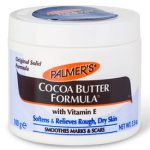PCR Tested The ‘Good Night Ring’
For a silent night, the £30 ring that promises to stop snoring: Jewellery found to reduce problem in 85% of wearers
For a silent night, the £30 ring that promises to stop snoring: Jewellery found to reduce problem in 85% of wearers
For a silent night, the £30 ring that promises to stop snoring: Jewellery found to reduce problem in 85% of wearers
Are you in need of a good rest over the festive period? Then this could be the perfect gift to discreetly slip into your other half’s Christmas stocking.
Scientists claim a specially designed ring for the little finger can reduce snoring.
When the £30 ring was tested, it was found to help 85 per cent of wearers who snored less often and less loudly – meaning their partners also got a better night’s sleep.
Accupressure: The ring is supposed to work by applying pressure to significant points on the body via bumps and flat surfaces
The Good Night ring was invented by Michael Carter-Smith, who was a saxophonist in the 1960s with band Amen Corner, whose hits included Bend Me, Shape Me and If Paradise Is Half As Nice.
It is based on the principles of acupressure, an ancient Chinese medicine which holds that the body is studded with pressure points that are connected to different areas and organs of the body through pathways called meridians.
Blockages in these pathways can cause ill health but can be eased by activating the correct pressure point, according to the theory.
In the case of the ring, two bumps on its inside press on points at the base of the little finger. This is said to open up the nasal passageways and make it easier for wearers to breathe through their nose, rather than snort and snore through their mouth.
In the study, 20 self-confessed snorers underwent a battery of tests as they slept. They were also quizzed about the quality of their sleep.
Easy fix? The ring, which claims to aid sleep by applying pressure to the little finger, is based on principles of Chinese medicine
The process was repeated twice – once when they wore the anti-snoring ring on their little finger and again when they put it on their index finger.
Wearing the ring on the index finger, which is missing the vital pressure points, did nothing to ease snoring. However, 17 of the men slept better when the ring was on their pinkie, the independent study found.
They snored less often and less loudly, were less tired the next day and their wives and girlfriends also slept better.
Good Night paid for the study but it was designed and conducted independently by scientists from testing firm Princeton Consumer Research. Princeton’s lead clinical scientist Danny McCamlie said: ‘In over 30 years in the industry we have never come across a non-invasive product for the reduction of snoring that has a significant effect, until we tested the Good Night anti-snoring ring.’
The ring’s inventor, Mr Carter-Smith, said that heavy snorers can wear a ring on each little finger.
However, those with sleep apnoea, in which over-relaxation of the muscles in the throat can cause breathing to stop dozens of times during the night, should see their doctor in the first instance.
Mr Carter-Smith said: ‘We live in a stressful society and getting the right quality and quantity of sleep is important for everybody.’
Princeton Consumer Research
Baypoint Commerce Center
Suite 120, 9600 Koger Blvd N
St Petersburg
Florida
33702
Princeton Consumer Research
575 Route 28
Building 1
Unit 100
Raritan
NJ 08869
Princeton Consumer Research
185 Stradbrook Ave
Winnipeg
MB
R3L 0J4
Princeton Consumer Research
8 Richmond Road
Dukes Park
Chelmsford
Essex
CM2 6UA
Princeton Consumer Research
164A Plymouth Grove
Manchester
M13 0AF
UK
 Princeton Consumer Helps Palmers To Substantiate their Claims
Princeton Consumer Helps Palmers To Substantiate their Claims 